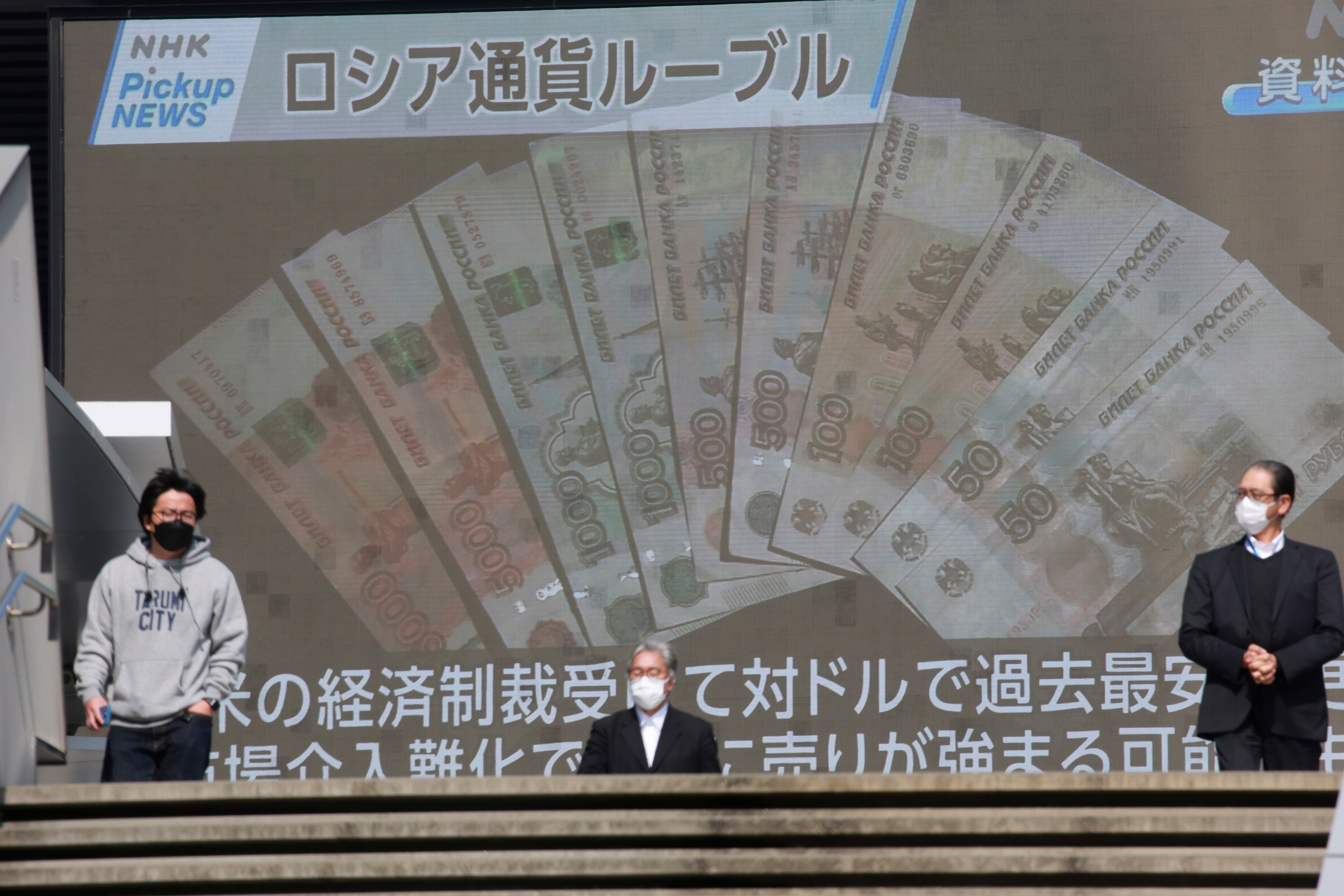Russia cuts interest rate as ruble settles despite sanctions
Russia’s central bank say it's lowering a key interest rate and said more cuts could be on the way

Your support helps us to tell the story
From reproductive rights to climate change to Big Tech, The Independent is on the ground when the story is developing. Whether it's investigating the financials of Elon Musk's pro-Trump PAC or producing our latest documentary, 'The A Word', which shines a light on the American women fighting for reproductive rights, we know how important it is to parse out the facts from the messaging.
At such a critical moment in US history, we need reporters on the ground. Your donation allows us to keep sending journalists to speak to both sides of the story.
The Independent is trusted by Americans across the entire political spectrum. And unlike many other quality news outlets, we choose not to lock Americans out of our reporting and analysis with paywalls. We believe quality journalism should be available to everyone, paid for by those who can afford it.
Your support makes all the difference.Russia's central bank has managed to stabilize key aspects of the economy with severe controls, artificially propping up the ruble to allow it to rebound to levels seen before the invasion of Ukraine even as the West piles on more sanctions.
That became evident as central bank of Russia said Friday that it was lowering its benchmark interest rate and said more rate cuts could be on the way. The decision indicates it thinks strict capital controls and other strict measures are stabilizing Russia's currency and financial system despite severe pressure from U.S. and European sanctions.
The bank lowered its benchmark rate from 20% to 17%, effective Monday. The interest rate cut reflected “the changed balance of risks” among inflation, economic growth and banking system stability, the bank said.
It had raised the rate from 9.5% on Feb. 28, four days after the invasion, as a way to support the ruble’s plunging exchange rate. A currency collapse would worsen already high inflation for Russian shoppers by ballooning the cost of imported goods.
The ruble fell from 79 to the dollar the day before the invasion to as low as 139 to the dollar. But it has since recovered to around 77 rubles to the dollar in very limited trading, bolstered by drastic measures such as forcing companies to exchange 80% of foreign currency for rubles and barring foreign investors from selling out of their ruble holdings.
Russia has pressed buyers of its oil and gas to pay in rubles, without much success, although Hungarian Prime Minister Viktor Orban has expressed that he would be willing.
The bank said weekly price data showed “a substantial slowdown in the pace of price increases, partly as a result of the dynamic of the ruble's exchange rate." The official inflation figure for February was 9.2%.
The bank's statement “allows for the possibility for a continuation of rate decreases at coming meetings."
Western sanctions have dealt a severe blow to the economy, cutting major banks off from international transactions, freezing central bank reserves and leading many Western companies to abandon their businesses in Russia.
Since an initial round of sanctions over Russia's annexation of Ukraine's Crimea region in 2014, the Kremlin has tried to insulate its economy from financial penalties by encouraging companies to source parts locally and banning food imports from Europe to encourage local production.